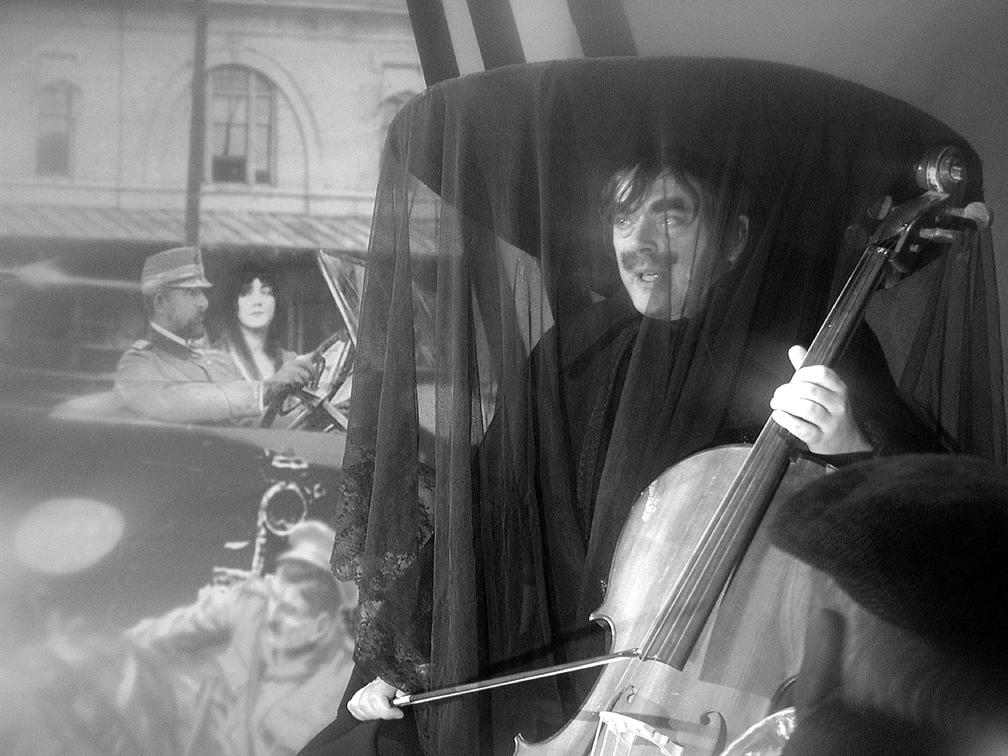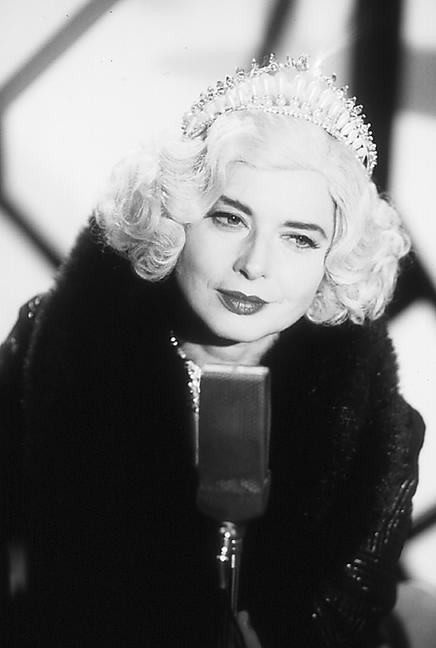Maddin, the youngest recipient of the Telluride Film Festival's Lifetime Achievement Award, first burst onto the scene with his cult classic Tales from the Gimli Hospital in 1988. His award-winning short “The Heart of the World” (2000) brought him international fame, and his most recent film, Dracula: Pages from a Virgin's Diary (2002), won a slew of accolades. Critics are hip to his talents. Now it's time for audiences to discover him.
Based on an original screenplay by novelist Kazuo Ishiguro (The Remains of the Day), The Saddest Music is Maddin's funniest film yet. It is also his most political. The contest is sponsored by a legless beer baroness, Lady Port-Huntly (played by the lovely Isabella Rossellini), who reasons that people drink more beer when they listen to sad music. Contestants arrive from all over the world to compete.
Representing America is Chester Kent, a down-on-his-luck Broadway producer clearly based on the James Cagney character of the same name from 1933's Footlight Parade. Maddin was hoping for an actor like Burt Lancaster or Kirk Douglas to fill the part; but, as those actors are either (in Maddin's own words) “dead or a little too hobbled by strokes to be much use,” he settled on fellow Canadian Mark McKinney of “Kids in the Hall” fame. McKinney is perfect for the part, both dashing and humorous—his only drawback being that at times the film feels like a drawn-out “Kids in the Hall” sketch.
Kent's companion is a nymphomaniac with amnesia played by Maria de Madeiros, the Portuguese pixie from Pulp Fiction and Henry and June. Also competing is Kent's older brother Roderick, a character so drenched in his own sadness that he is nearly drowning in it and who, for some unknown reason, is representing Serbia under the pseudonym Gavrillo.
During the contest—which is really more of a sporting event with loudspeakers, obnoxious sportscasters and crowds of cheering beer guzzlers—the political implications begin to appear. In some sort of cultural imperialism, Kent rounds up the various nationalities to work for him, beginning with the Mexicans. Eventually, he has a virtual melting pot of an orchestra, which he uses to side off against powerhouse Serbia. I'll leave it to the political experts and historians to figure out exactly what it all means, but I will say that my friend from Yugoslavia was both bewildered and bemused by the concept.
People unfamiliar with Guy Maddin may find his papier mâché production values puzzling. He is certainly an eccentric filmmaker and all of his films have a strange quality about them bordering on cheesiness (or, more accurately, camp). Then there are the moments of alarming insight and sheer beauty. His films look and sound as if they were made in the '20s or '30s, but with an unmistakable postmodern sensibility. One of Maddin's most endearing qualities is his almost fetishistic love for the scratchy hissing sound that accompanies old films. He often utilizes sound loops of static and white noise to create different moods for his scenes. It works so well that viewers may be lulled into thinking that they are watching an actual old film until closer inspection reveals someone on screen holding a Super Big Gulp! As anachronistic as it sounds, the films feel refreshingly innovative. Maddin understands the language of cinema better than anyone working today and is able to convey vast amounts of information visually. The dialogue is almost superfluous, although always discreetly hilarious.
If there is a single fault to be found in Maddin's work, it is that one yearns to care more for his characters as actual people, which is impossible to do as they are all so superficially cinematic (or cinematically superficial). Maddin probably comes closer than he ever has before in creating a “real” character with Lady Port-Huntly, who is very reminiscent of Madame Jouve from The Woman Next Door (1981). Although the “accident” in The Saddest Music is played for laughs, unlike the heart-wrenching tragedy of the Truffaut film. Perhaps it is to Isabella Rossellini's credit that she generates so much empathy, as when she receives a gift of prosthetic legs and is obviously overjoyed.
Films this good don't come around very often, so don't miss it. Pop over to Il Vicino for a couple of pints and then stroll next door to the Guild for an unforgettable musical melodrama filled with comedy, sorrow and hockey. Your night will overflow with sad melodies and good beer.




